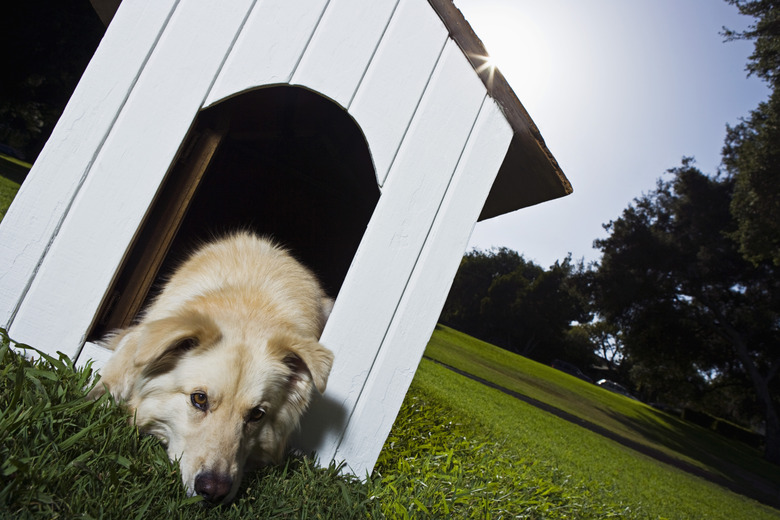Symptoms Of Colic In A Dog
Colic is a term used to refer to any type of abdominal pain and discomfort. Although it's more common in horses, dogs and cats can experience colic as well. Because there can be many underlying causes of colic — some very serious — it's important that you take your dog to the vet to evaluate the problem and find the appropriate treatment.
Dealing with Colic
Dealing with Colic
Colic is more common in puppies than dogs, but it can appear in pets of all ages. The level of pain varies from one dog to the next, with some cases being acute and intense, while others appearing as mild chronic discomfort. Common signs and symptoms of colic include abdominal pain that leads to constant crying or whining, a bloated stomach, weakness and sluggishness and loss of appetite. Pets with intense abdominal pain might curl in a ball or roll around in the ground seeking discomfort. If the colic is caused by a serious problem, such as kidney disease or a pancreatitis attack, your dog might lose consciousness. Regardless the cause, veterinary care is required.
Always check with your veterinarian before changing your pet's diet, medication, or physical activity routines. This information is not a substitute for a vet's opinion.
